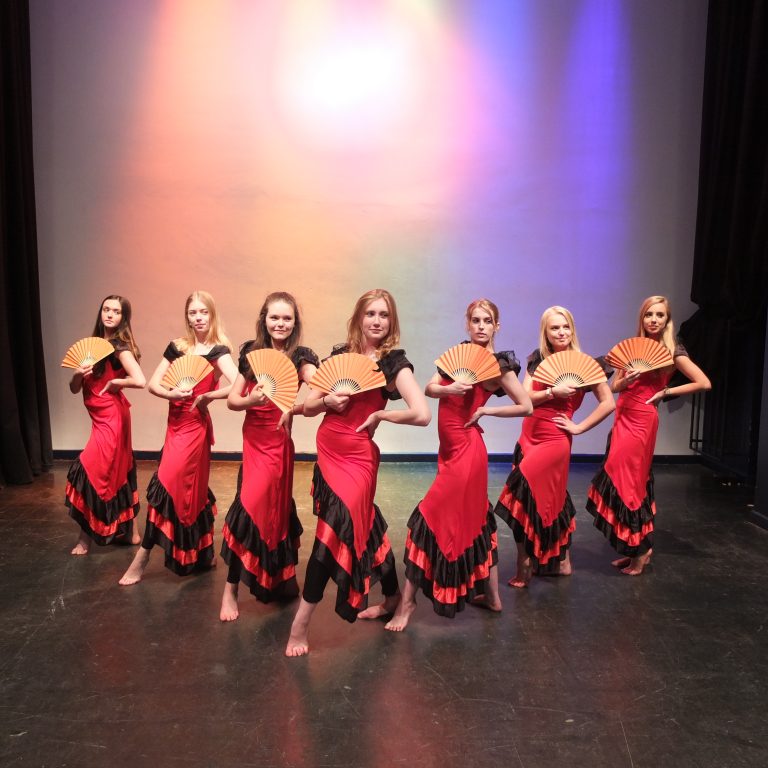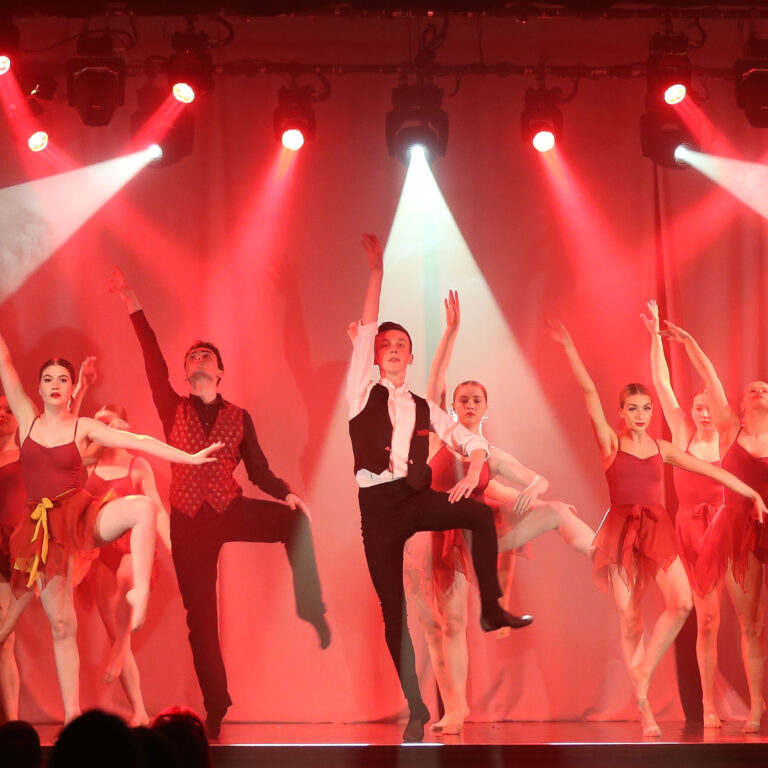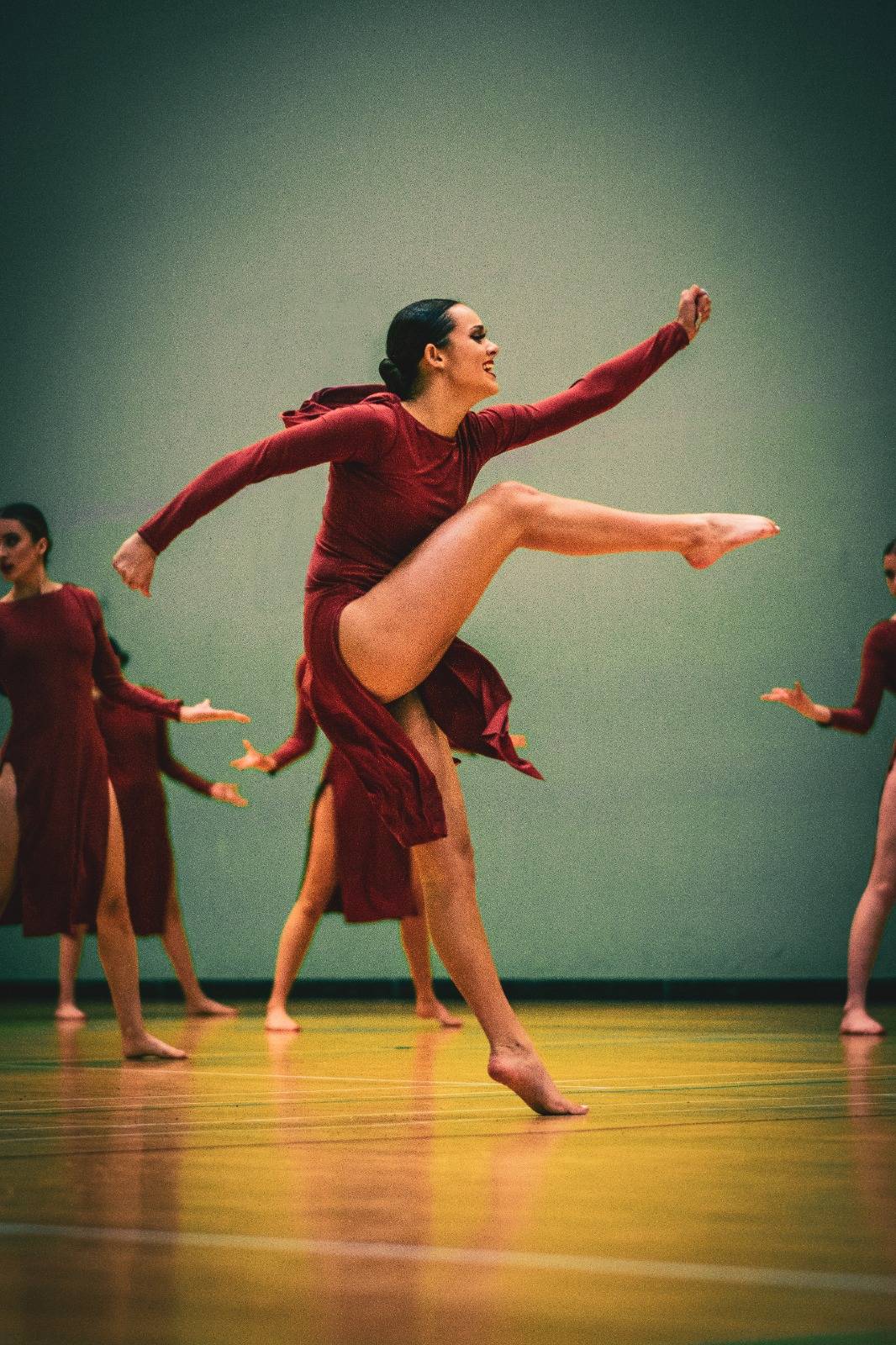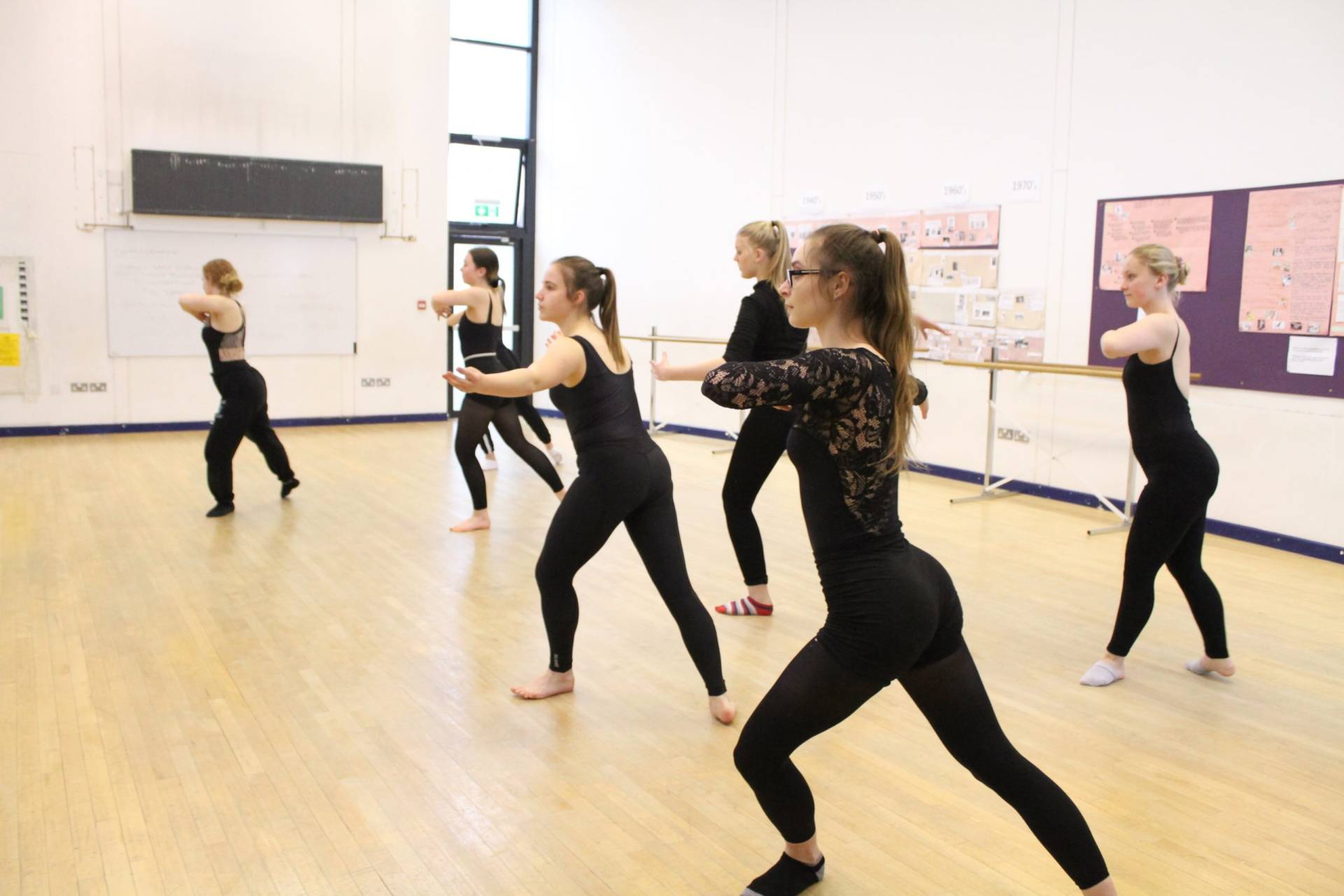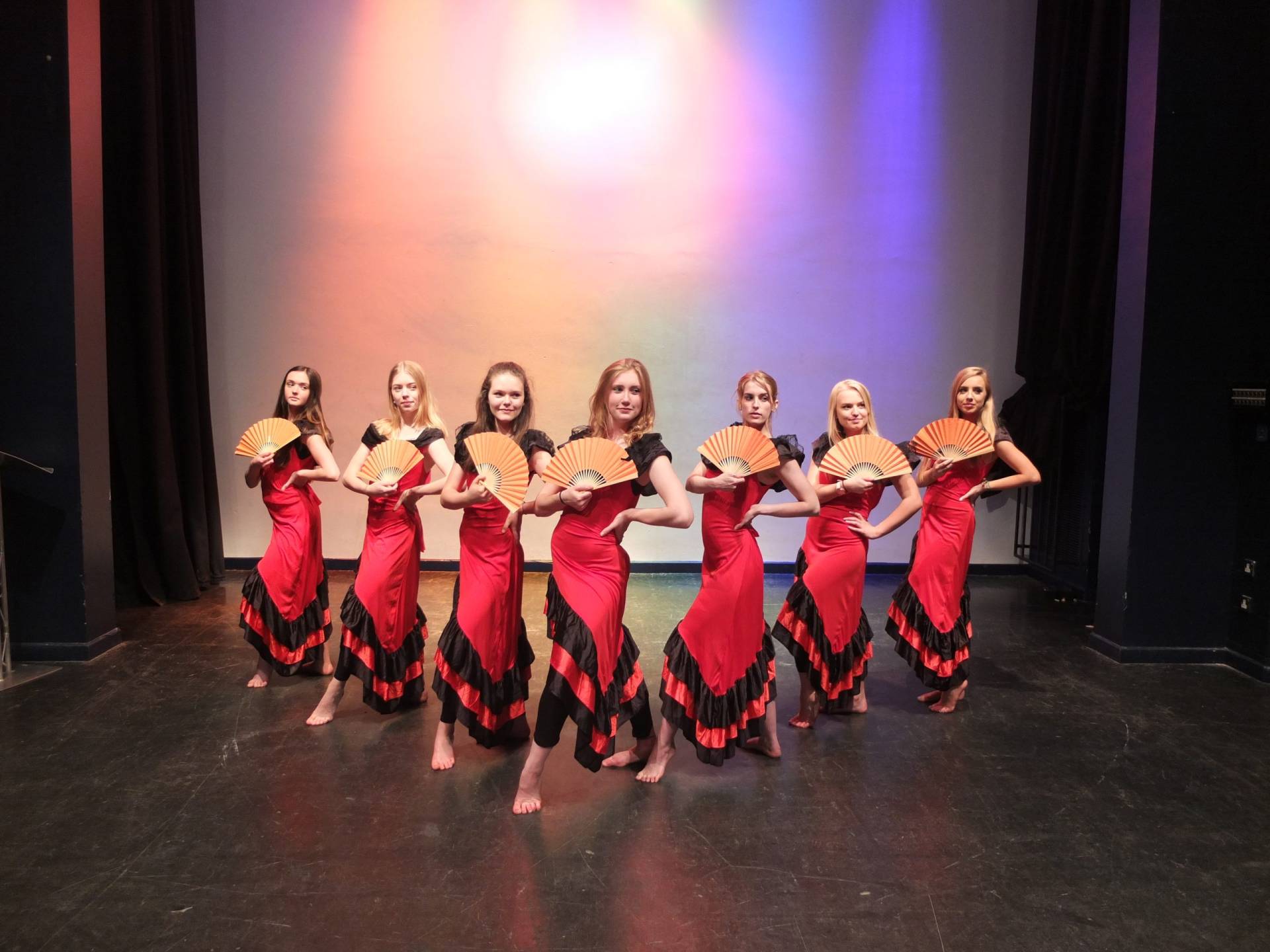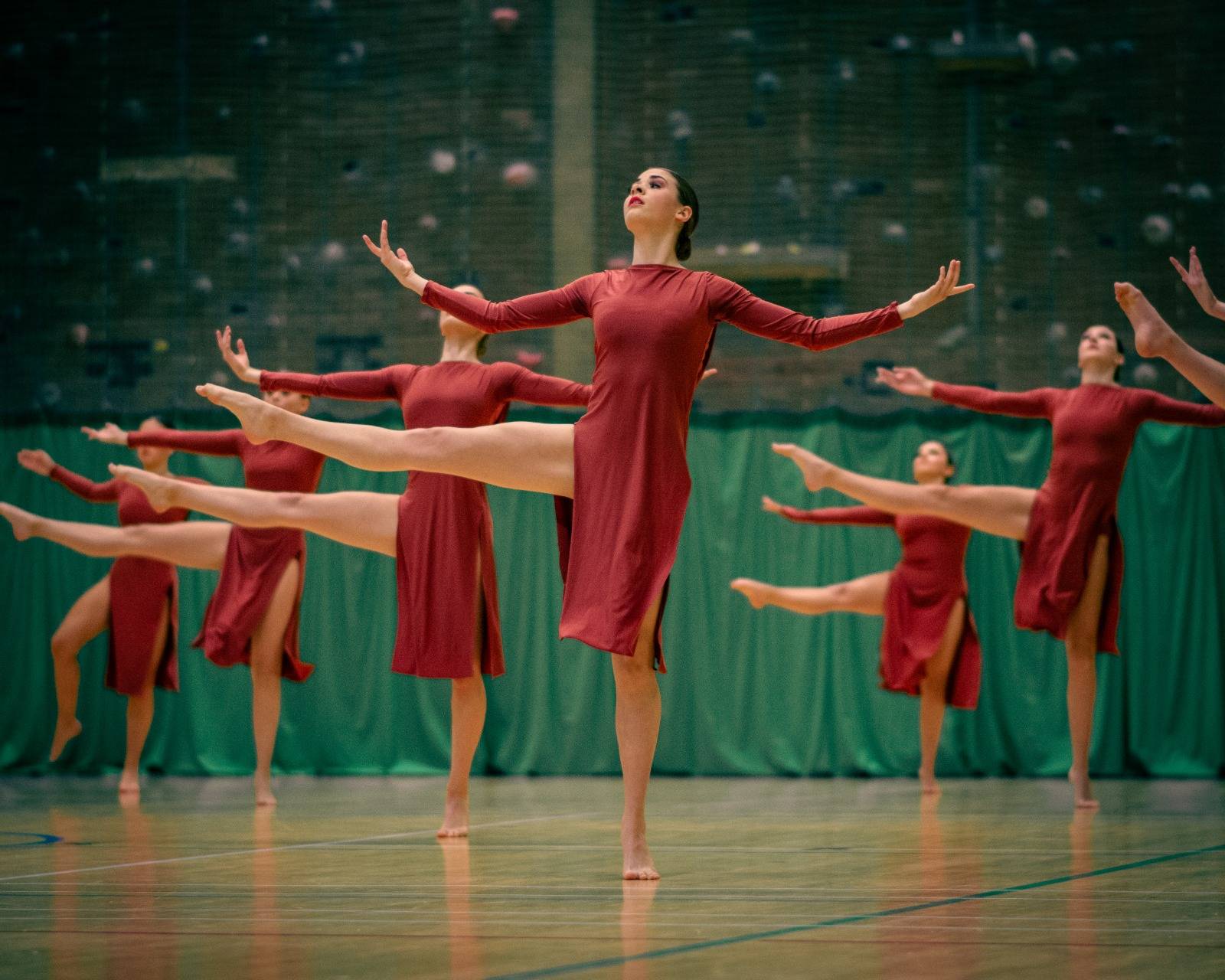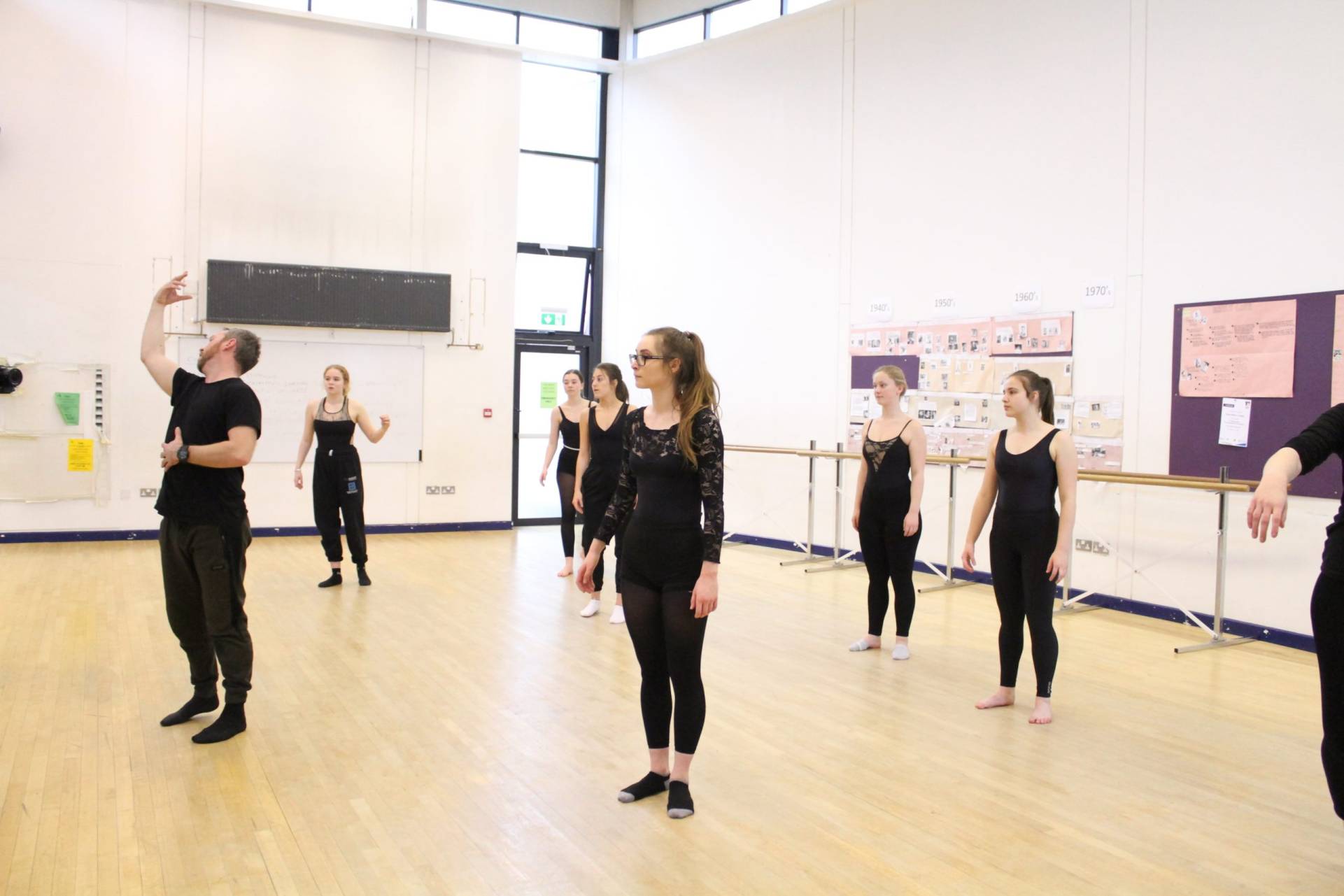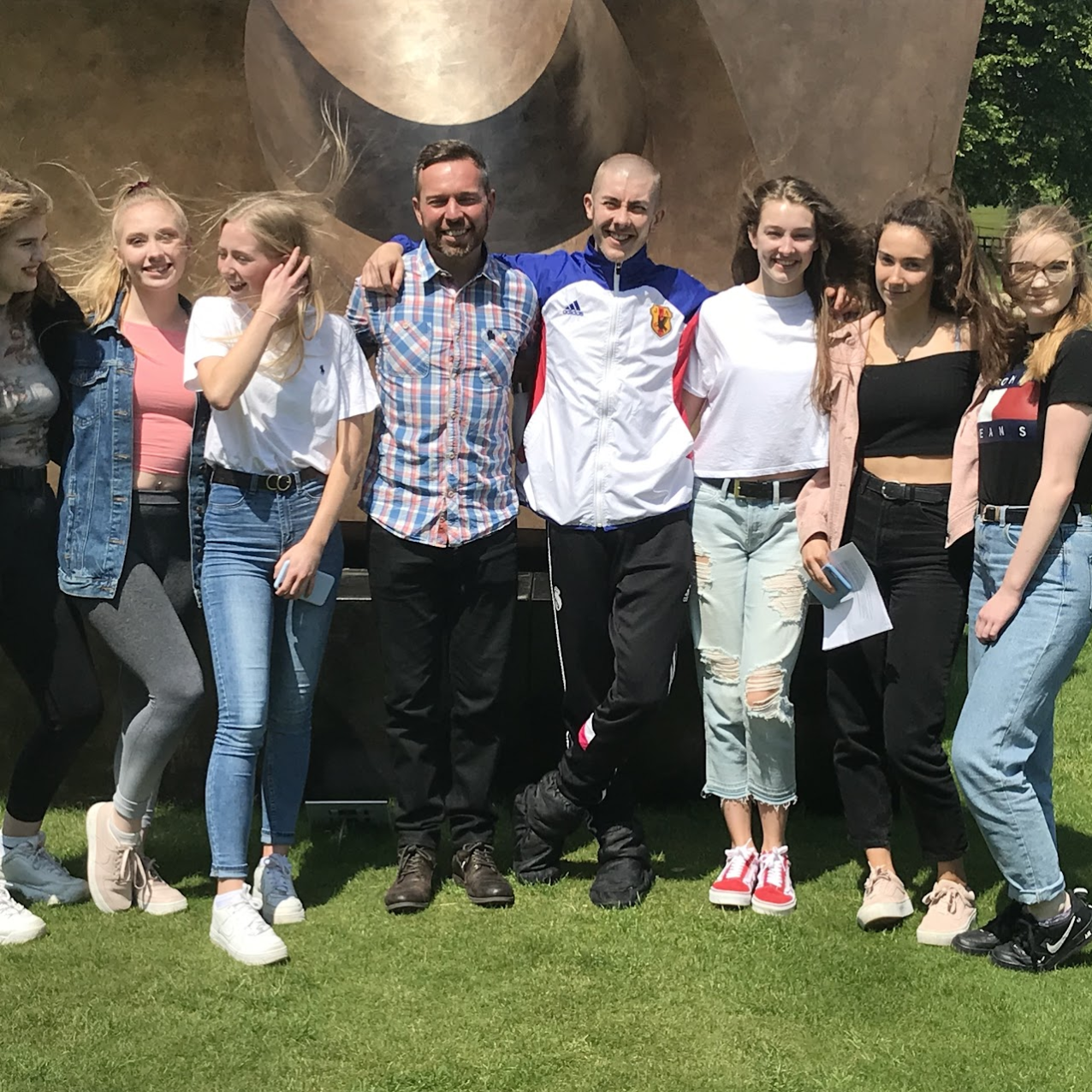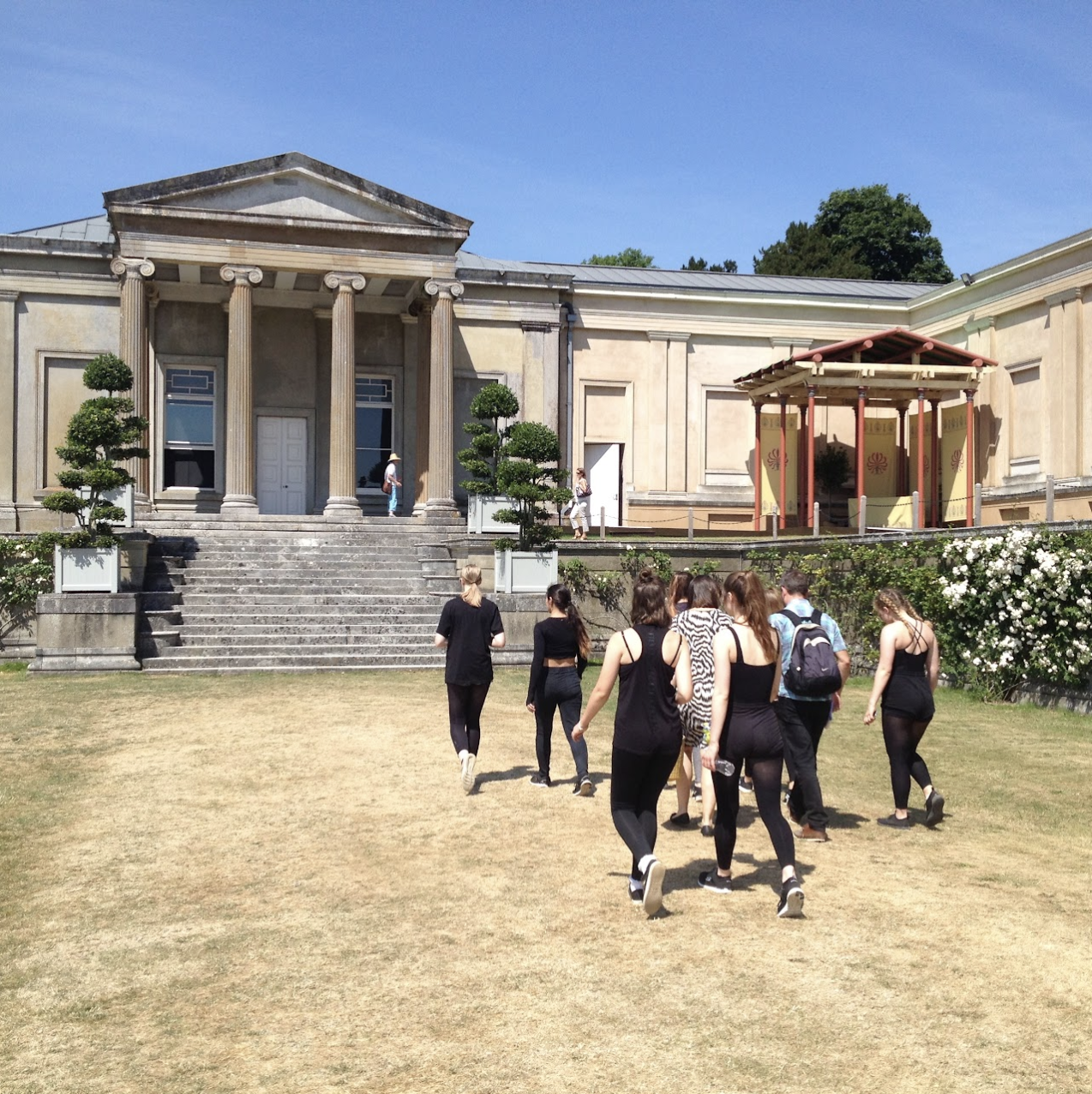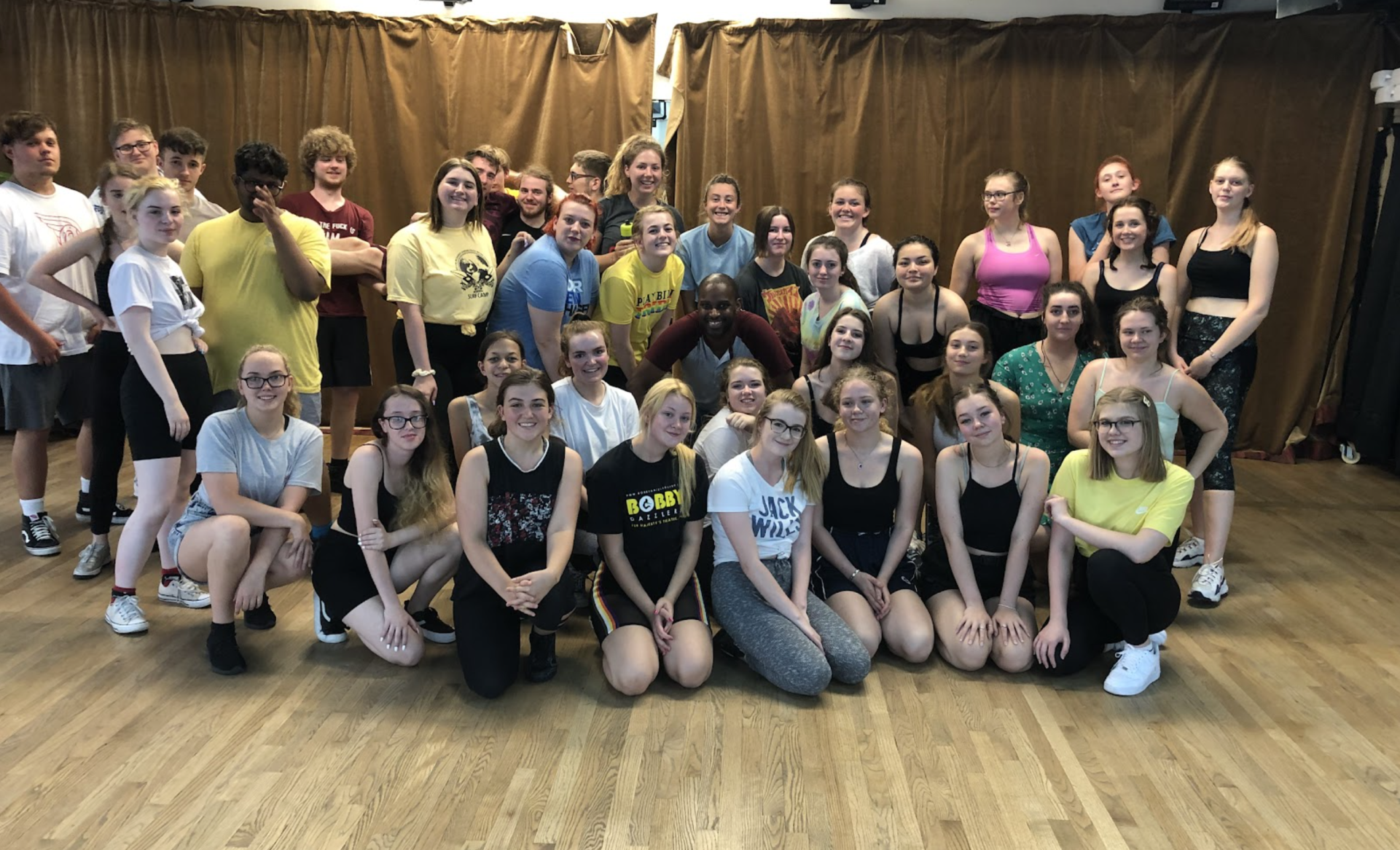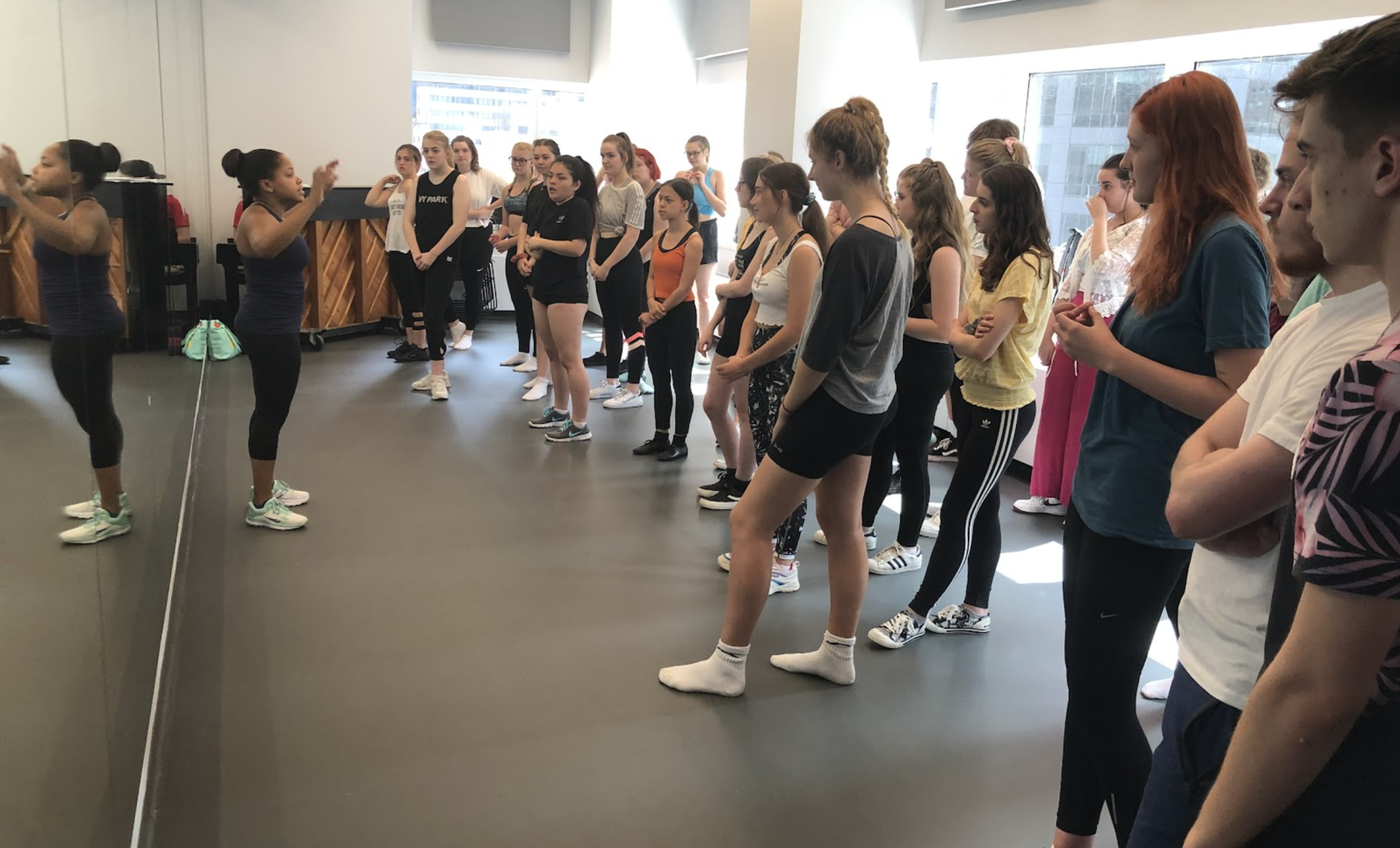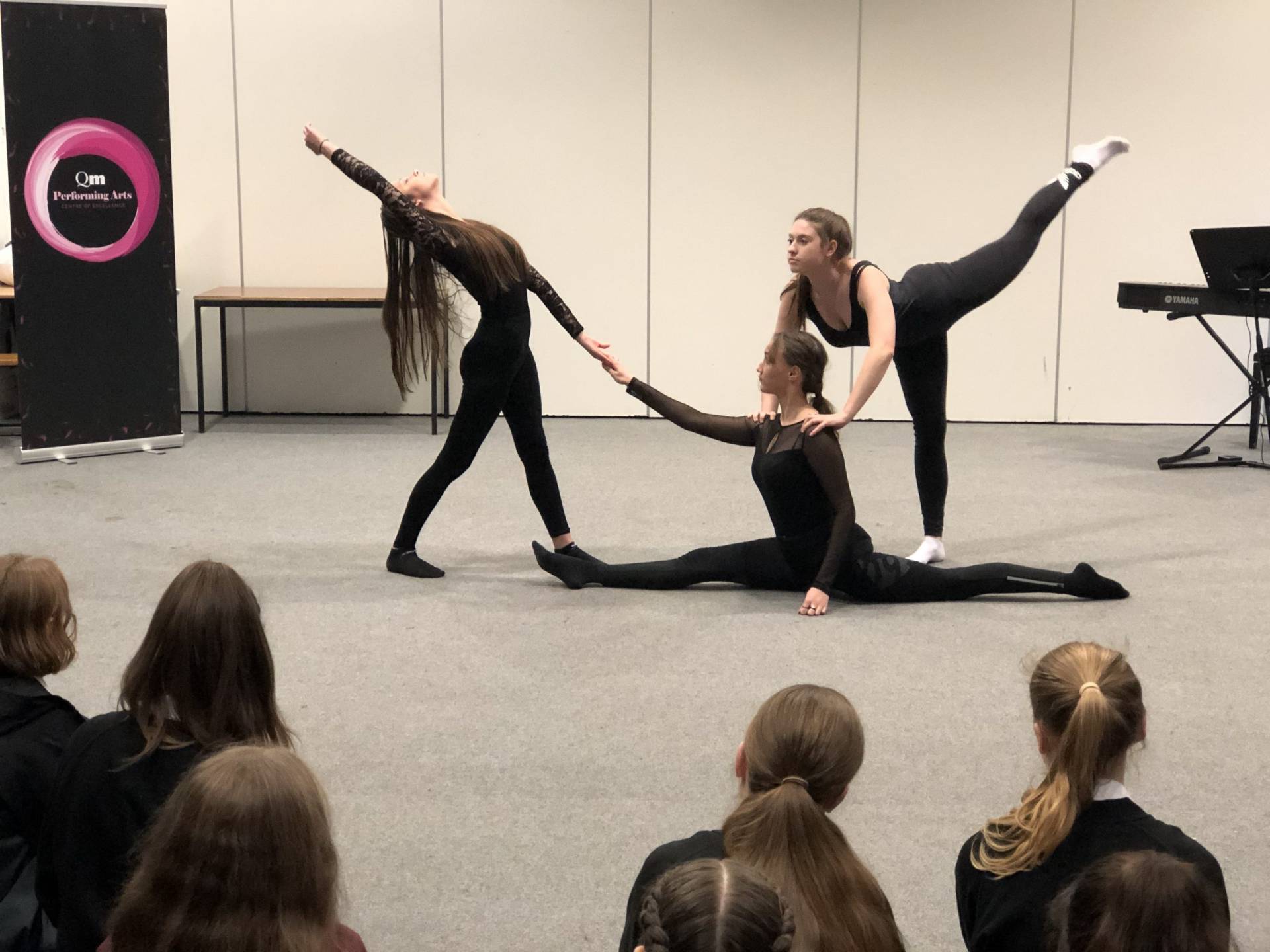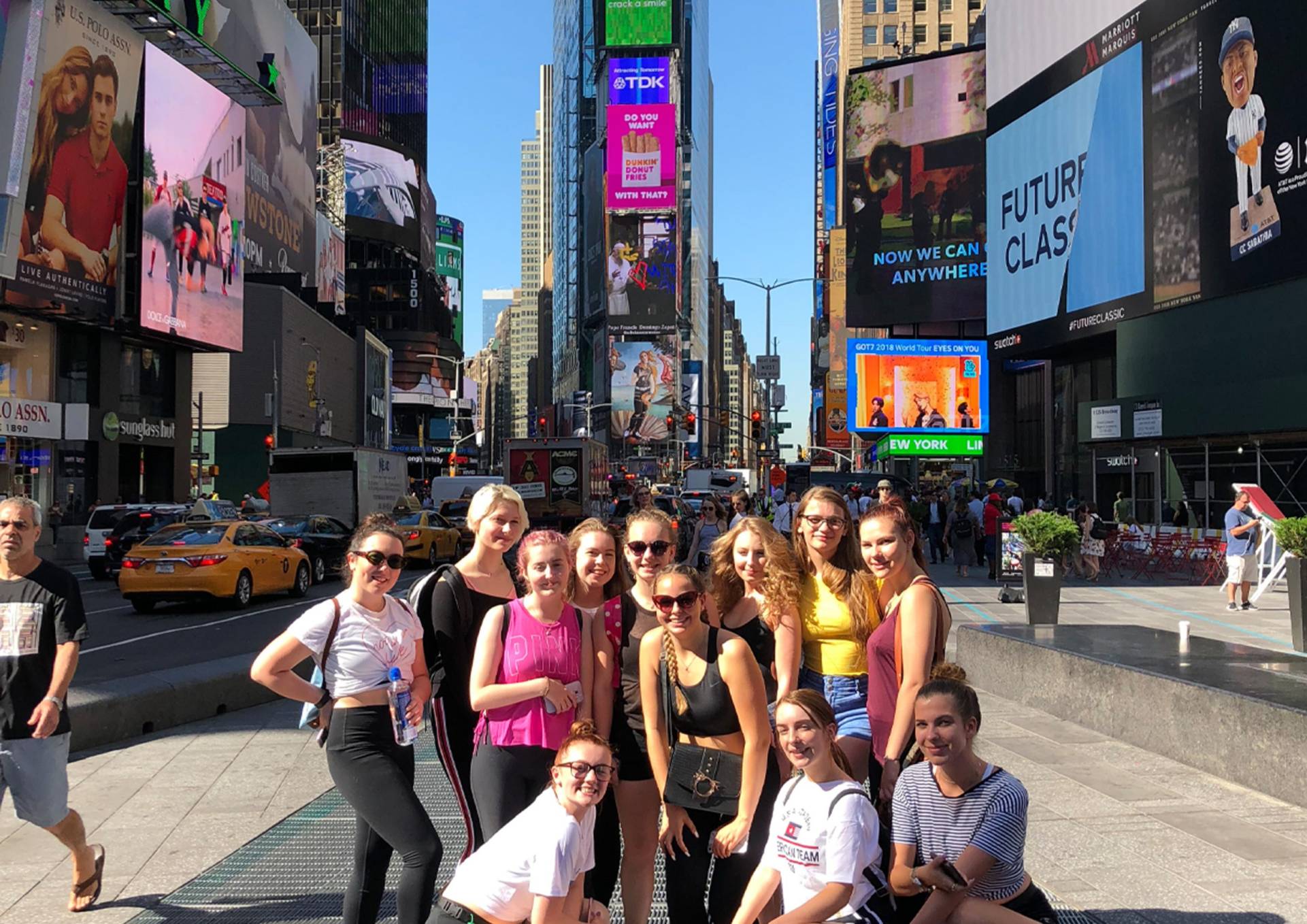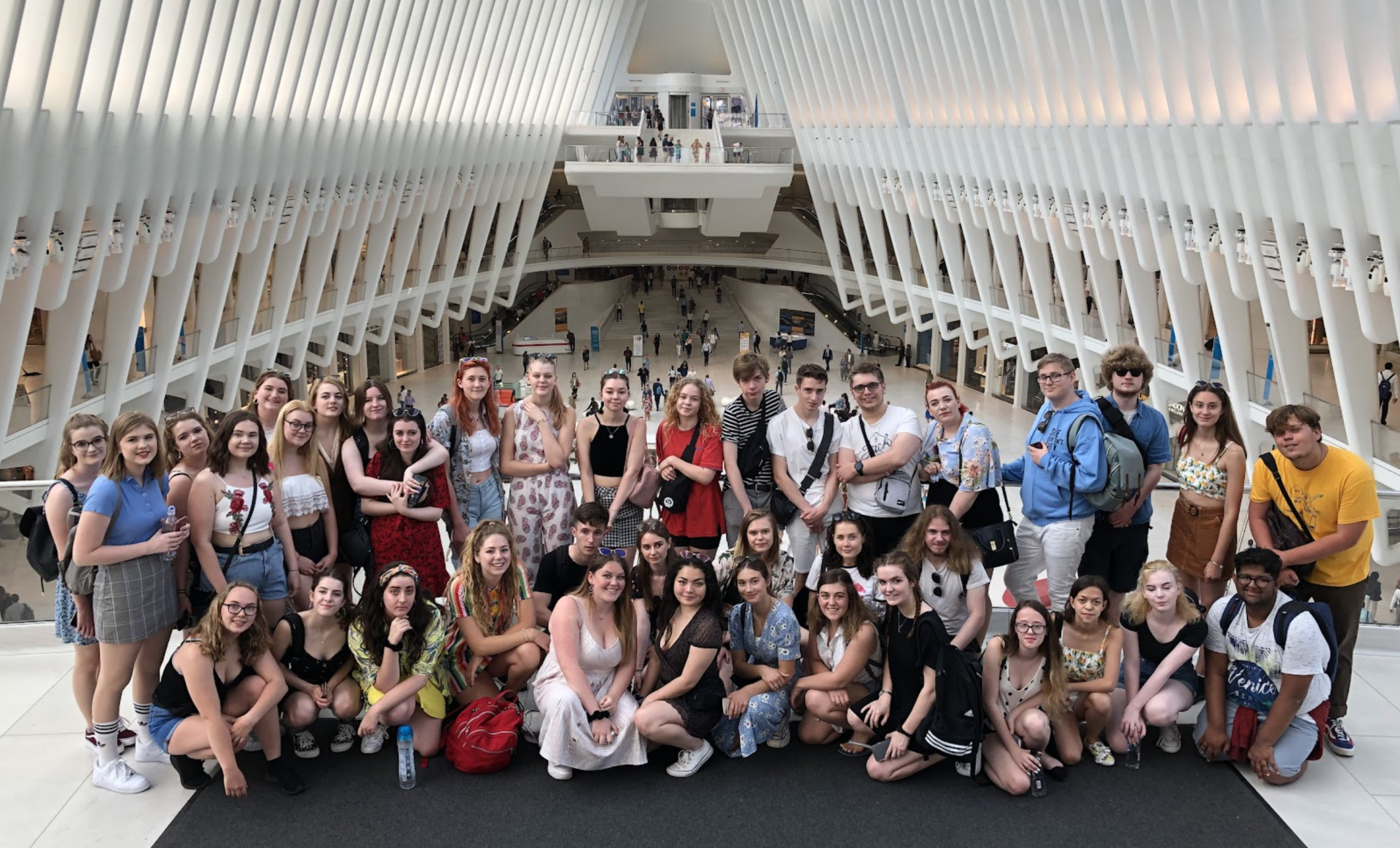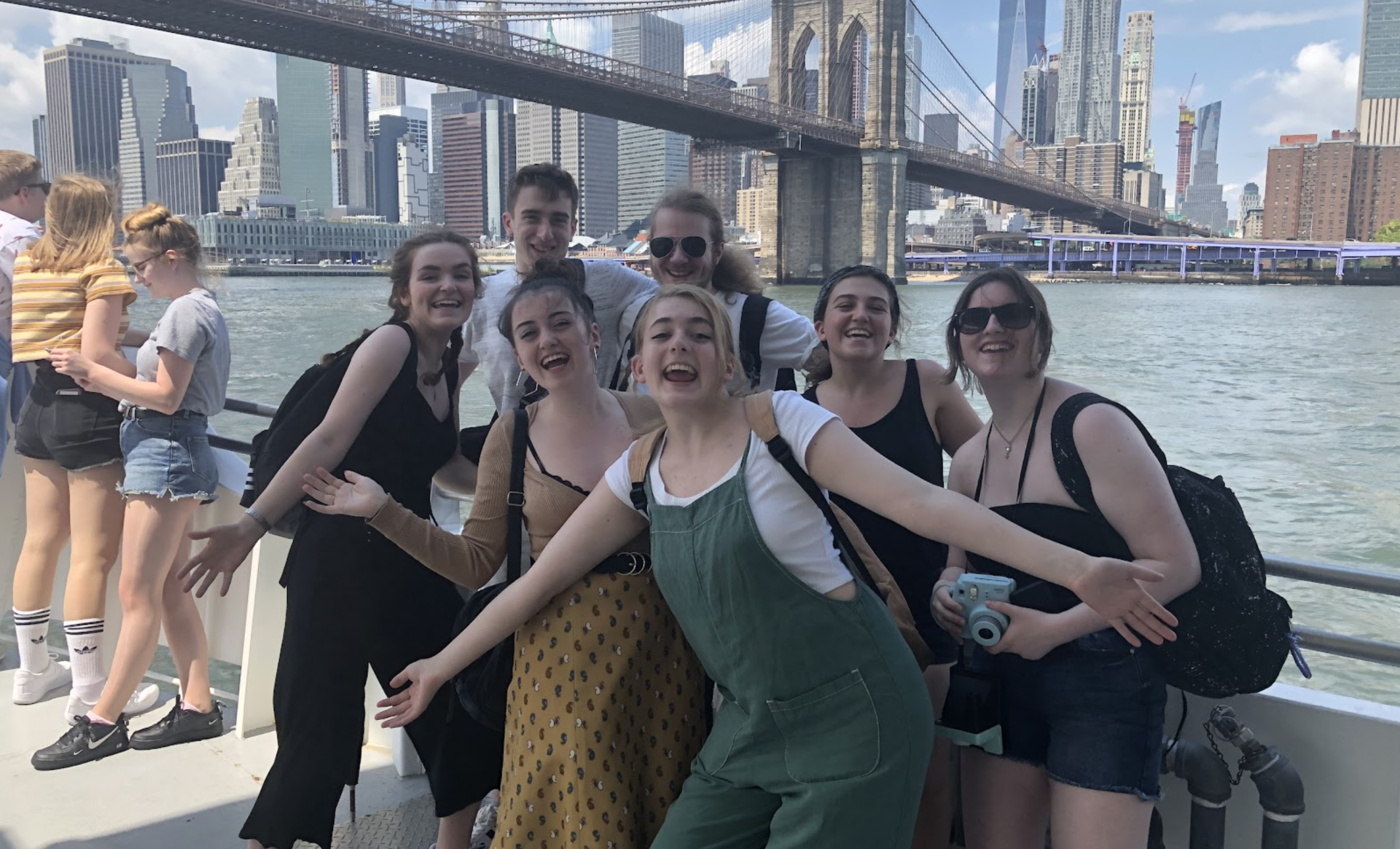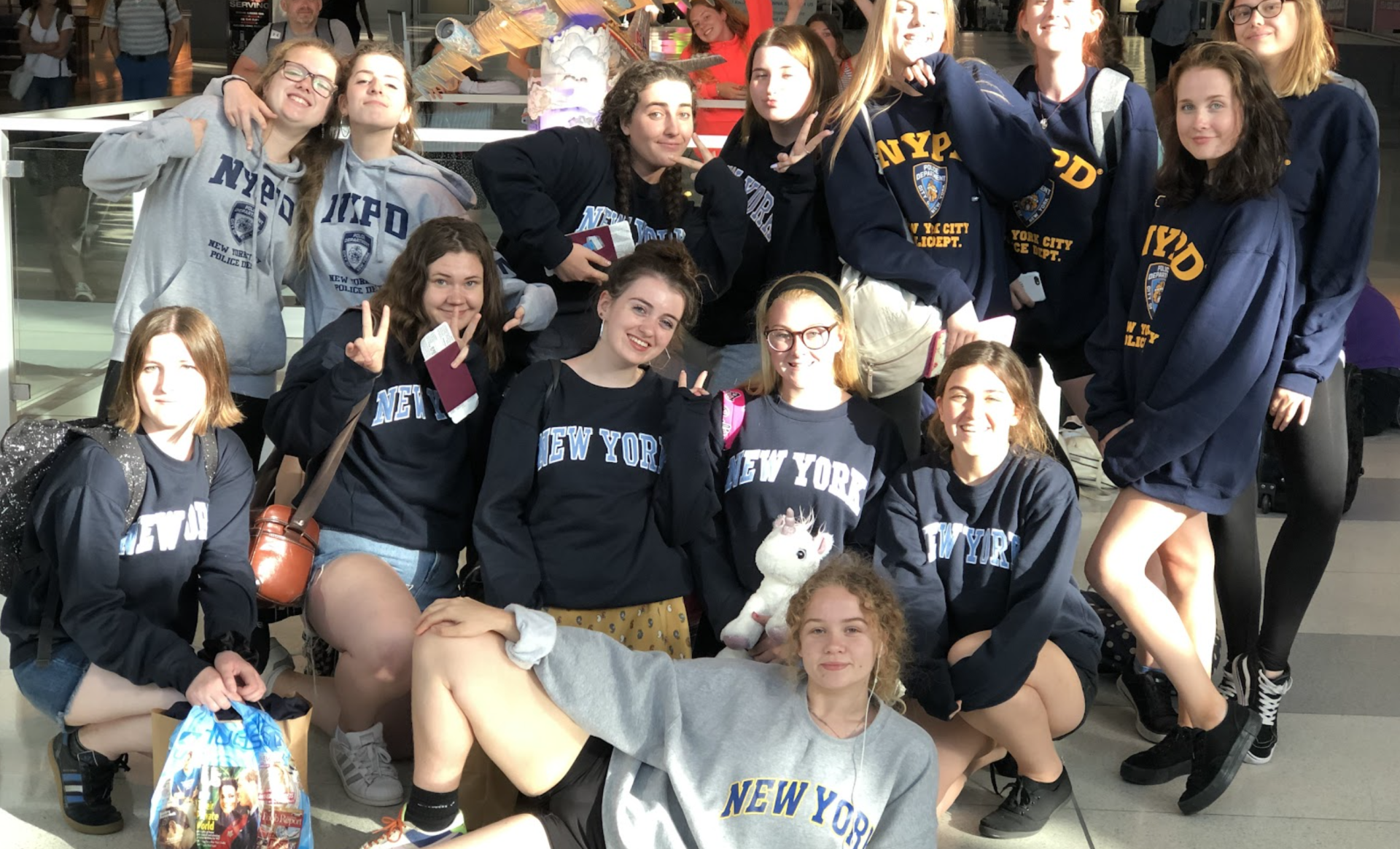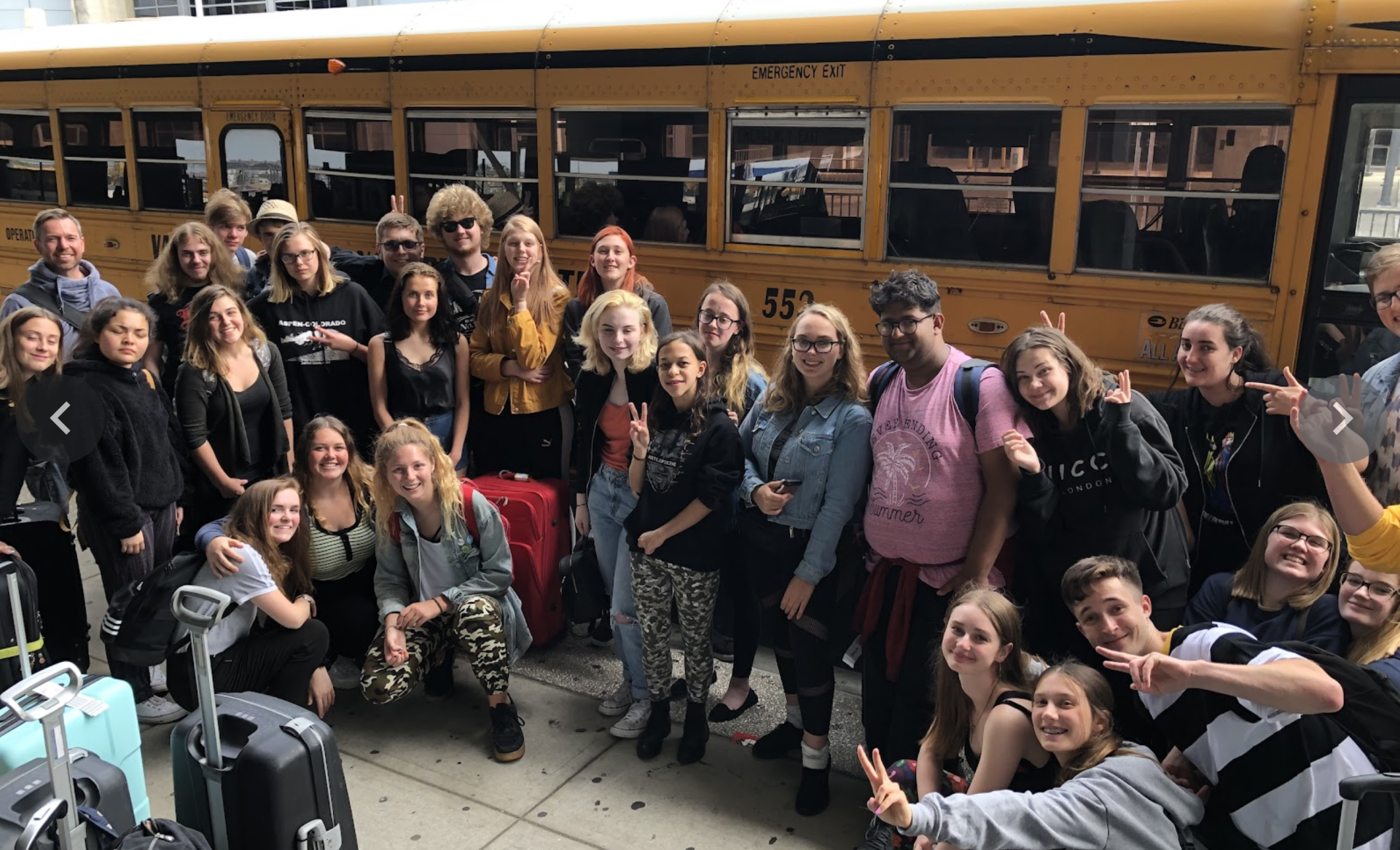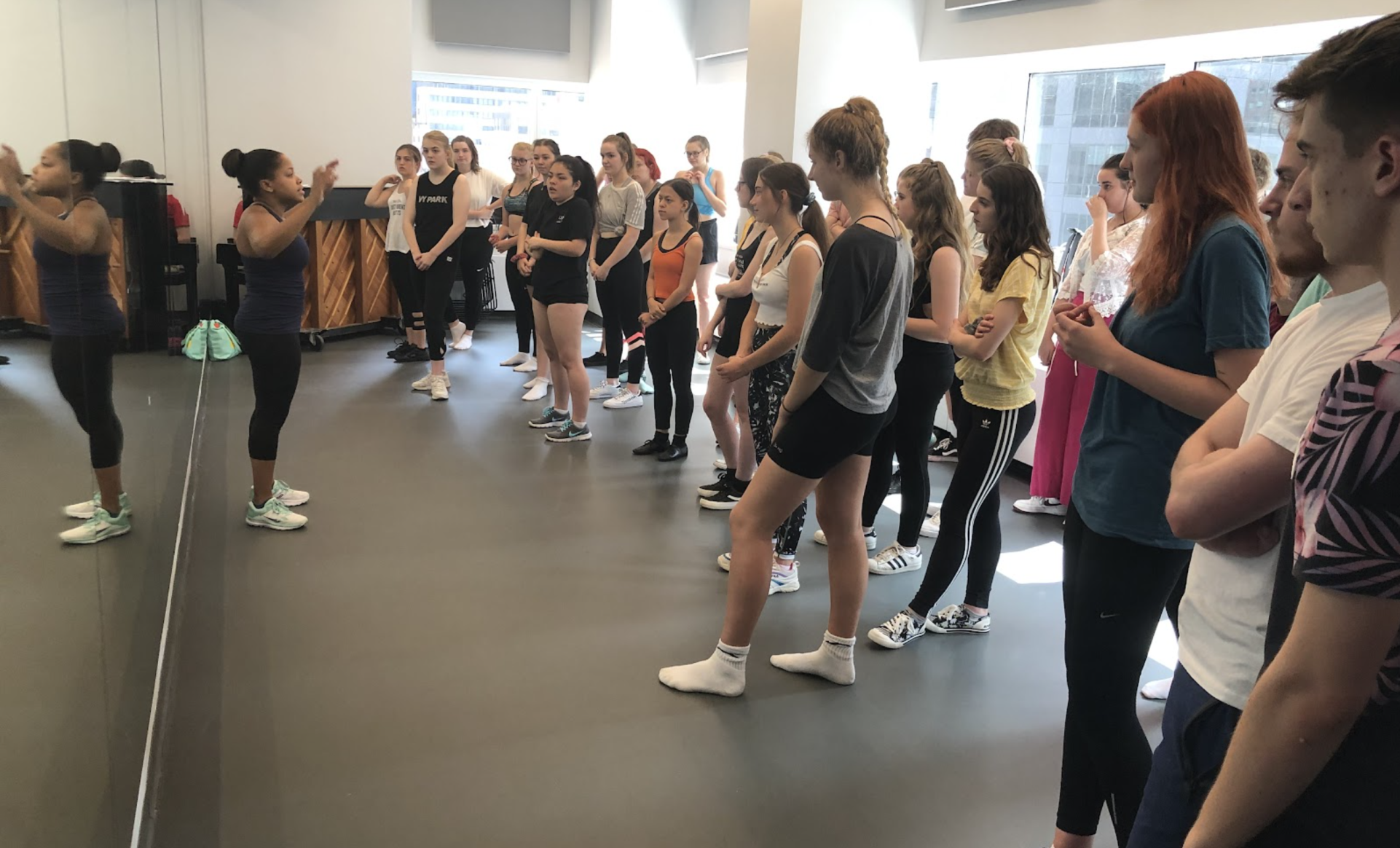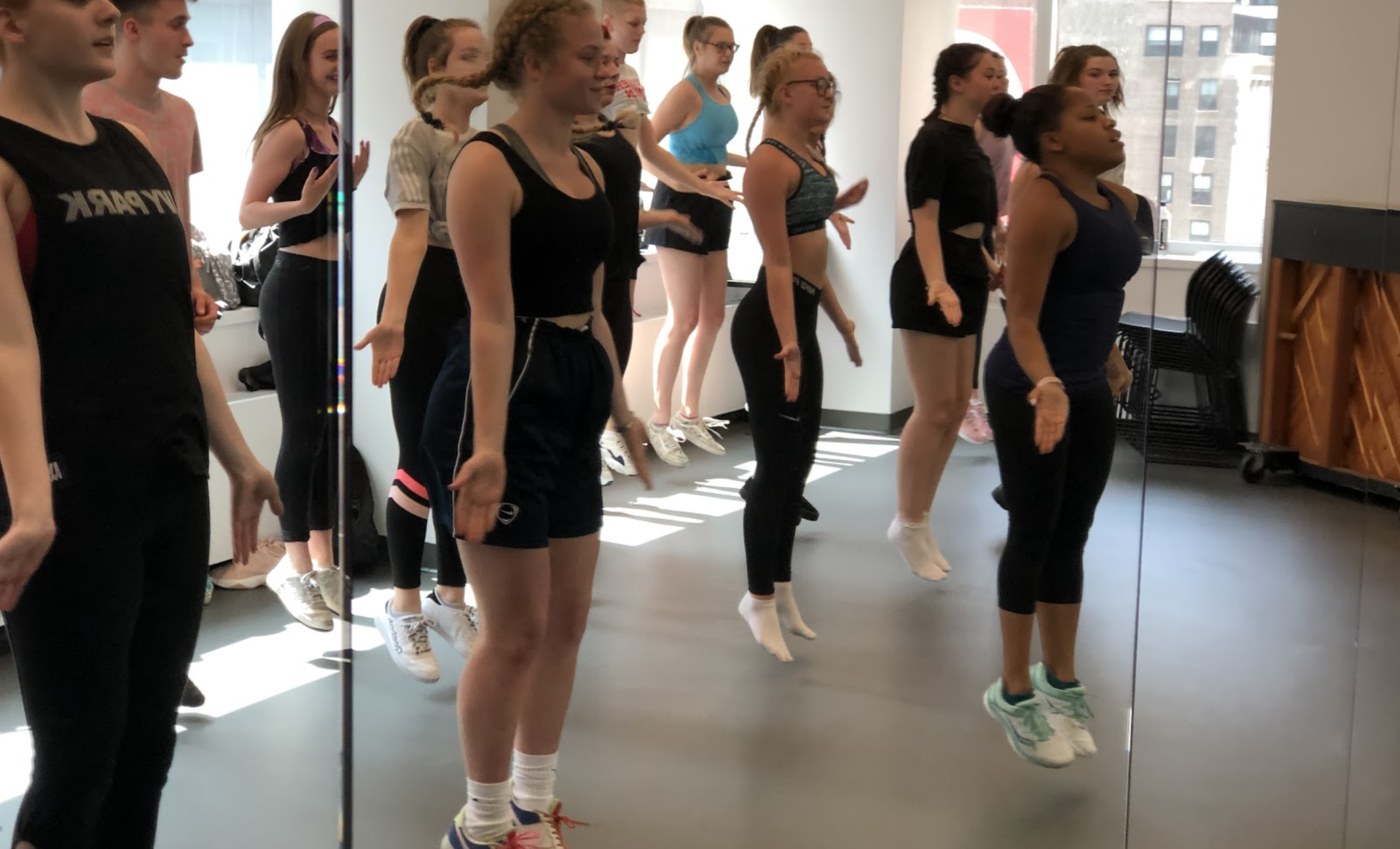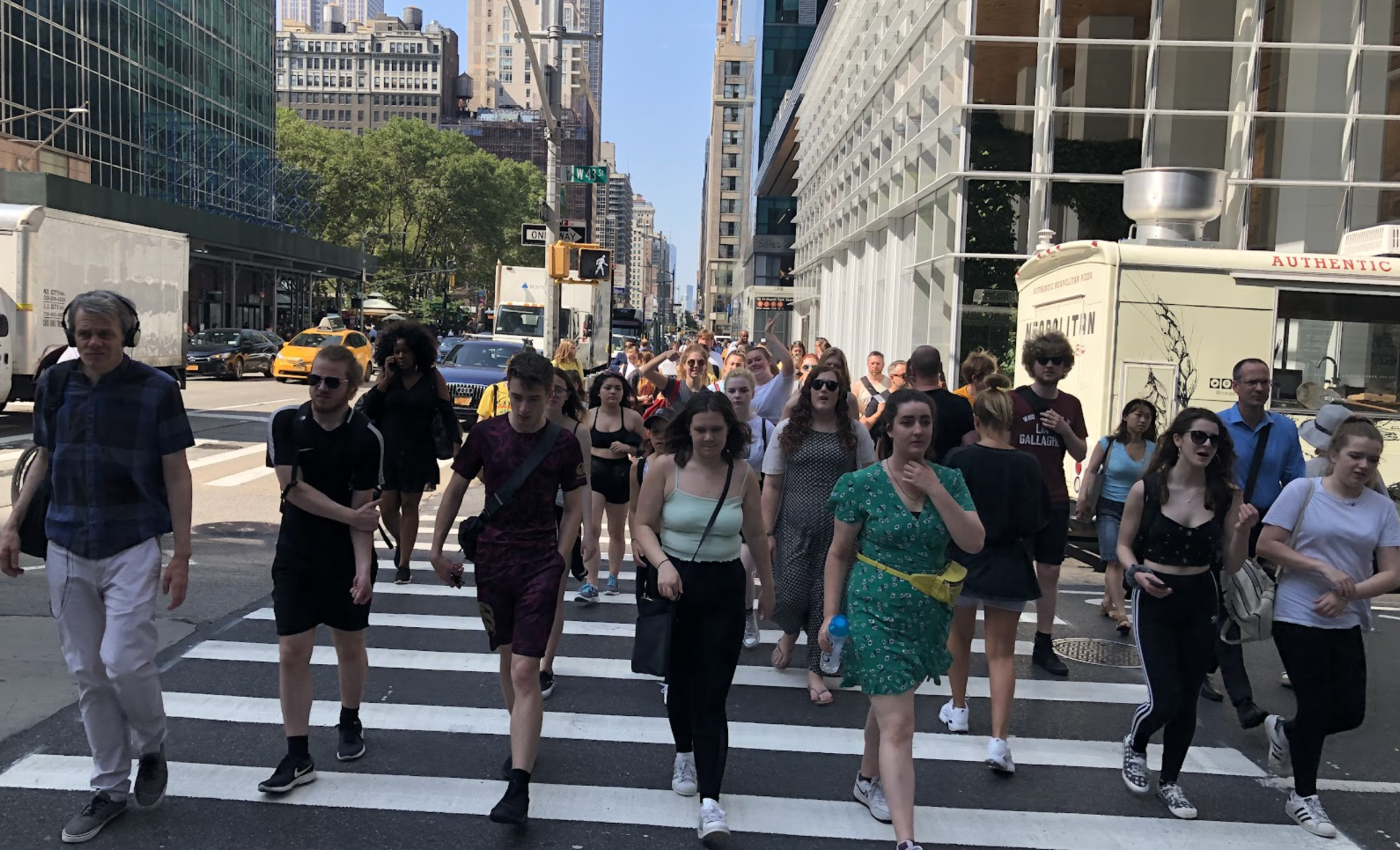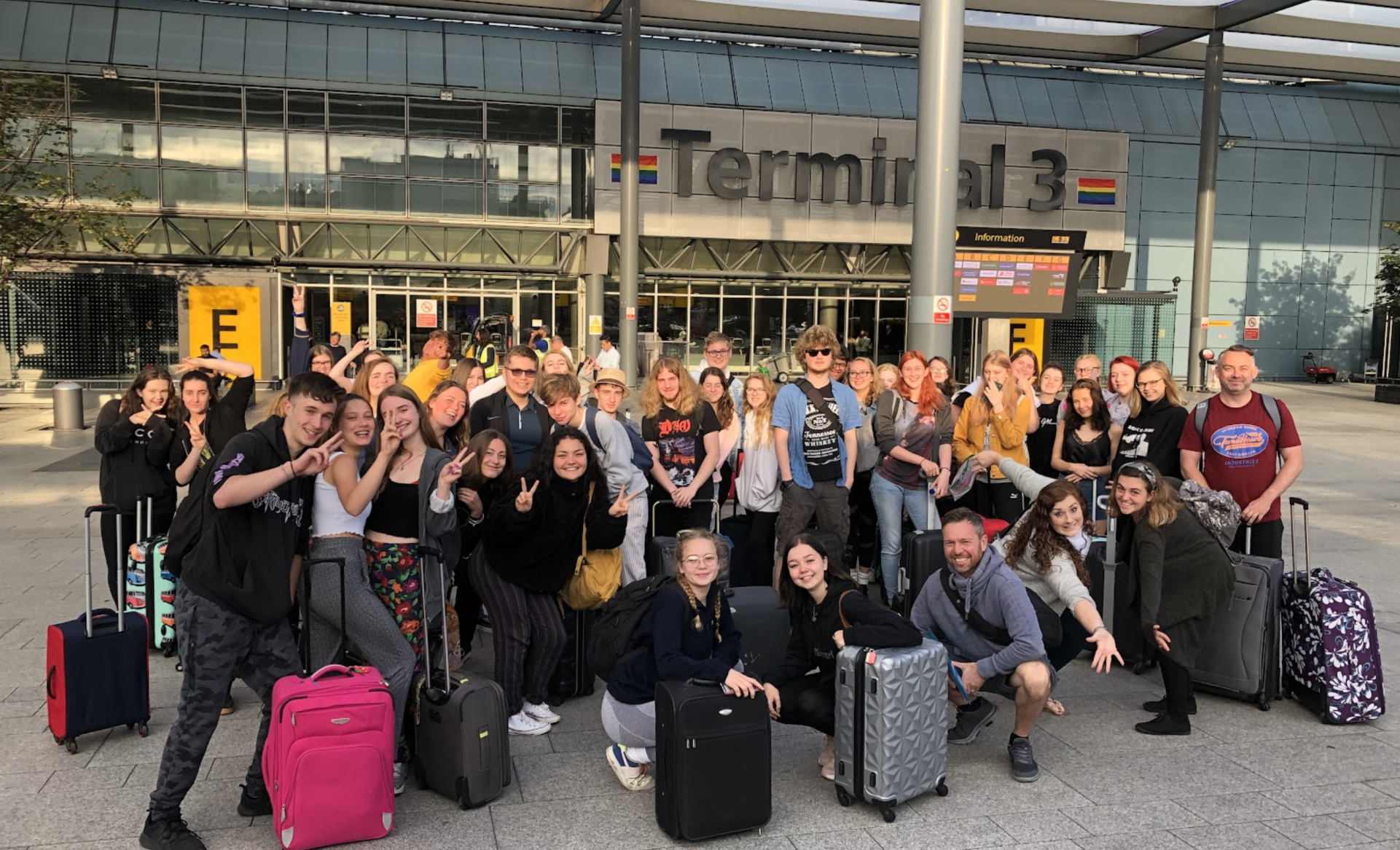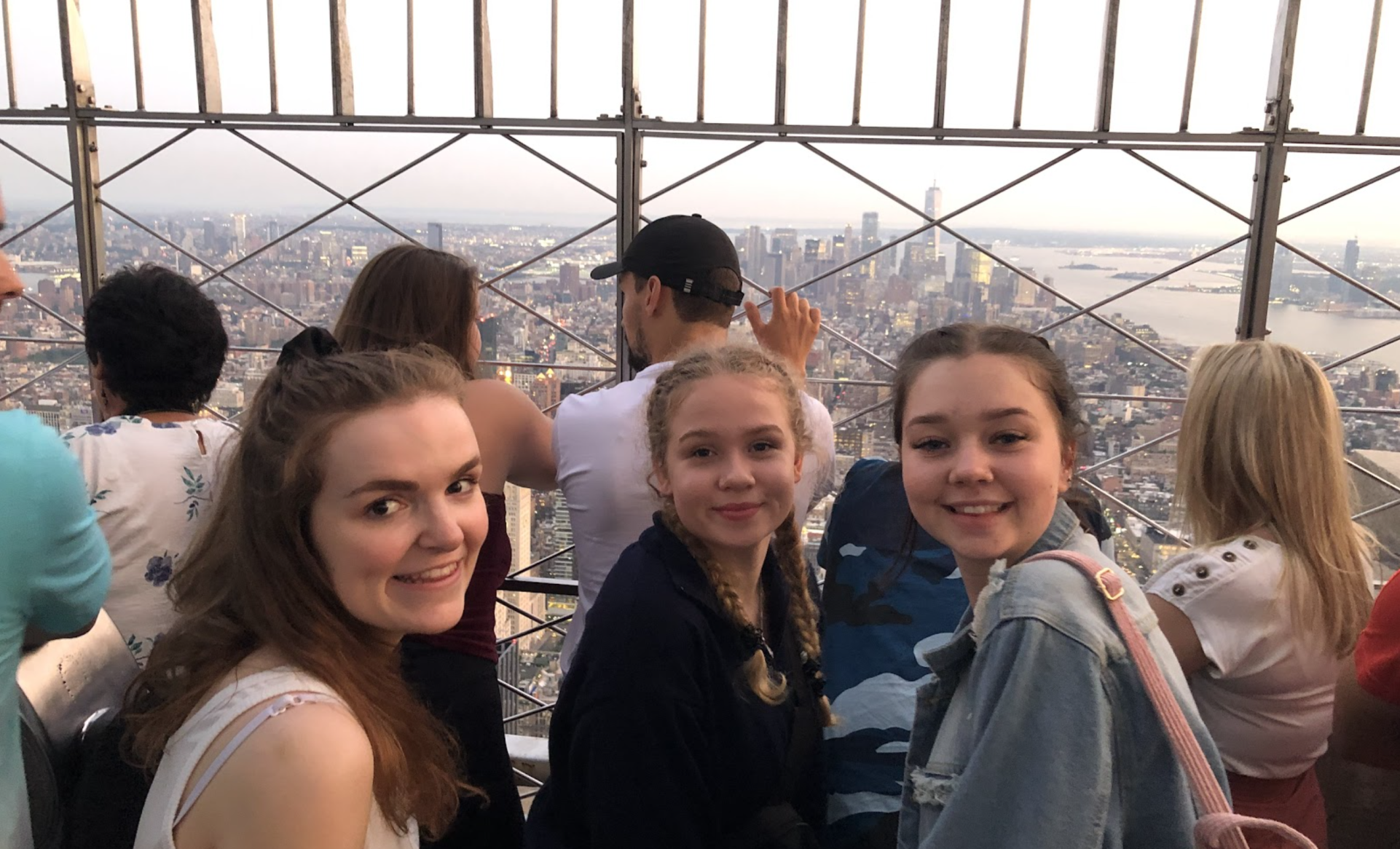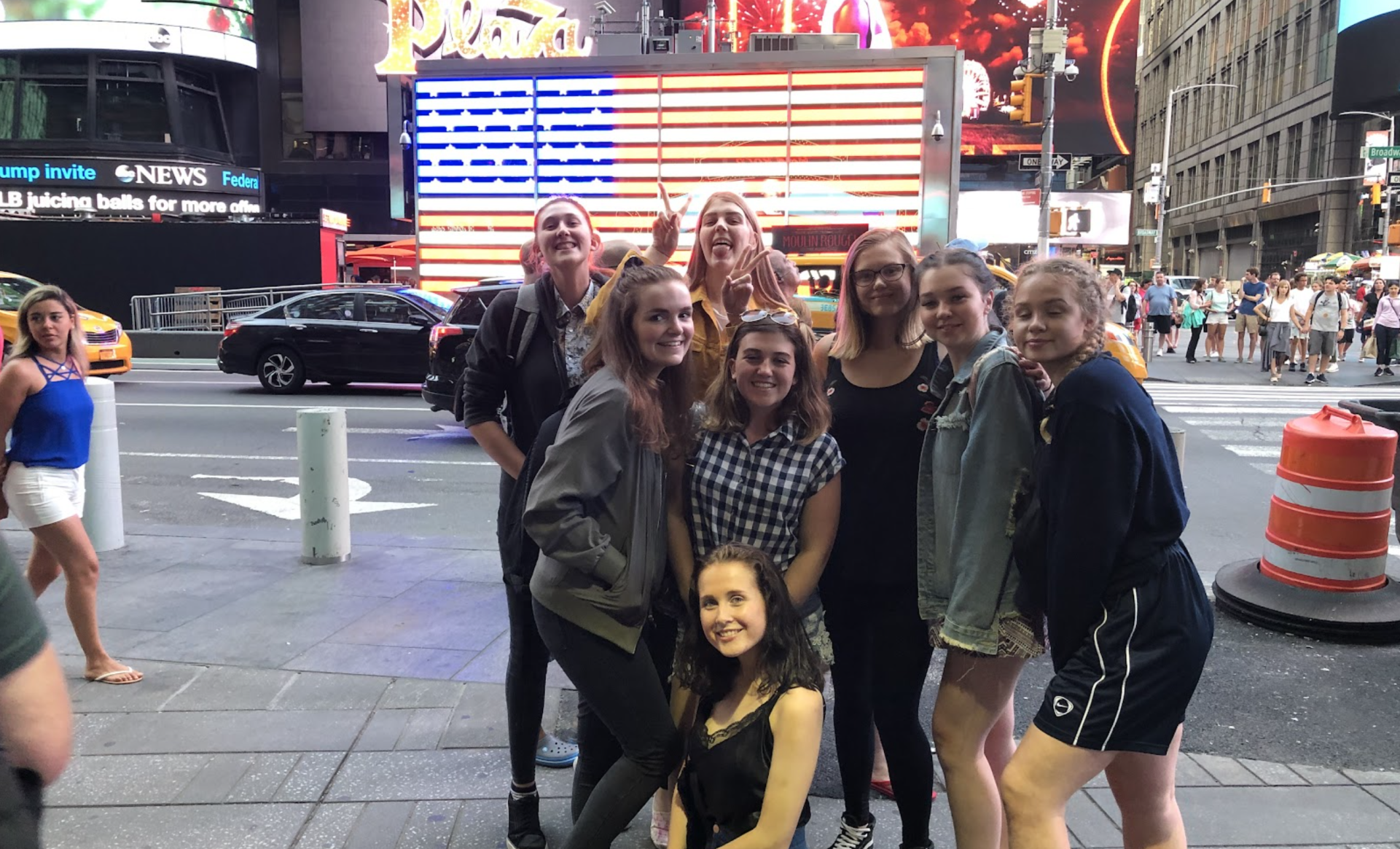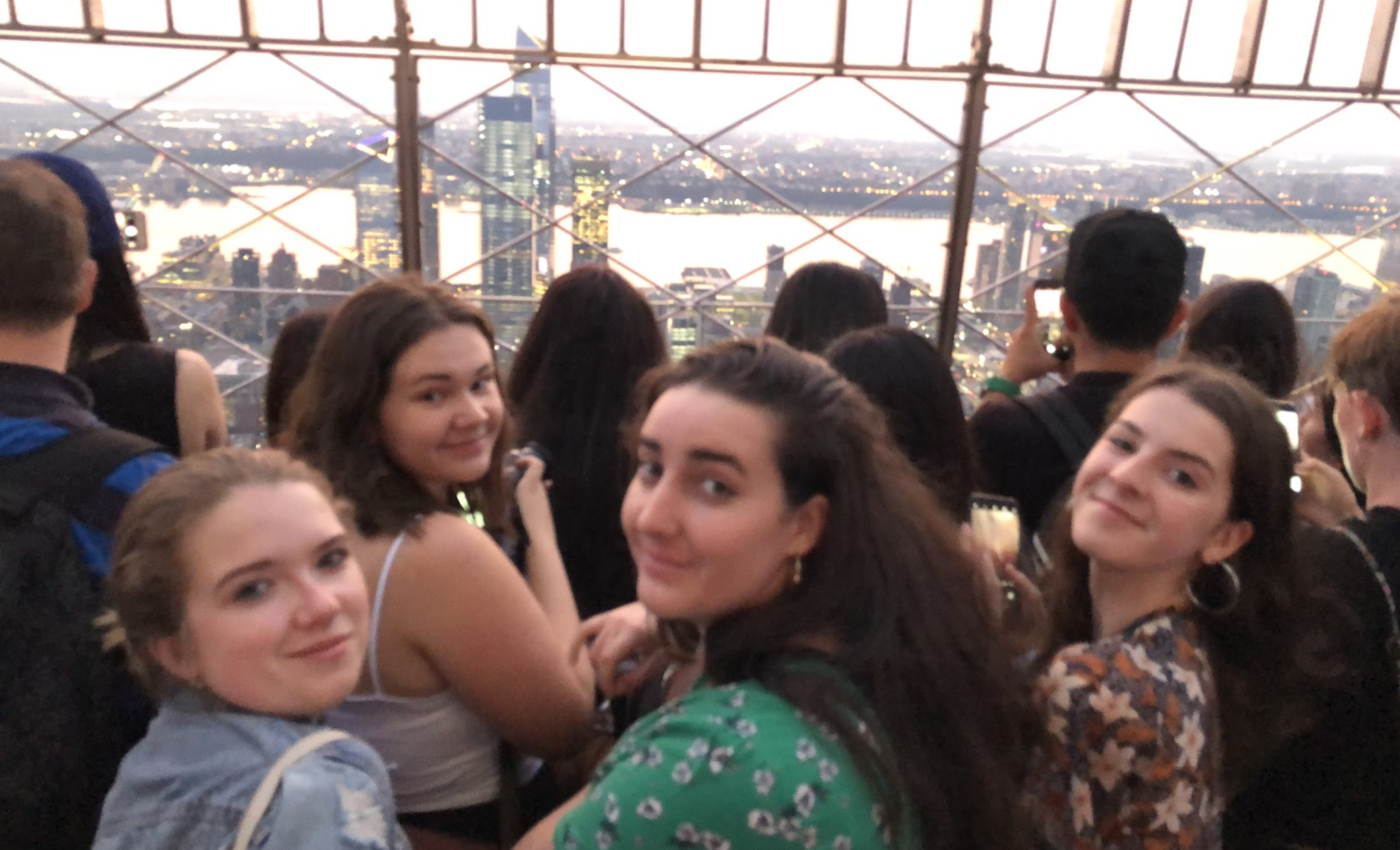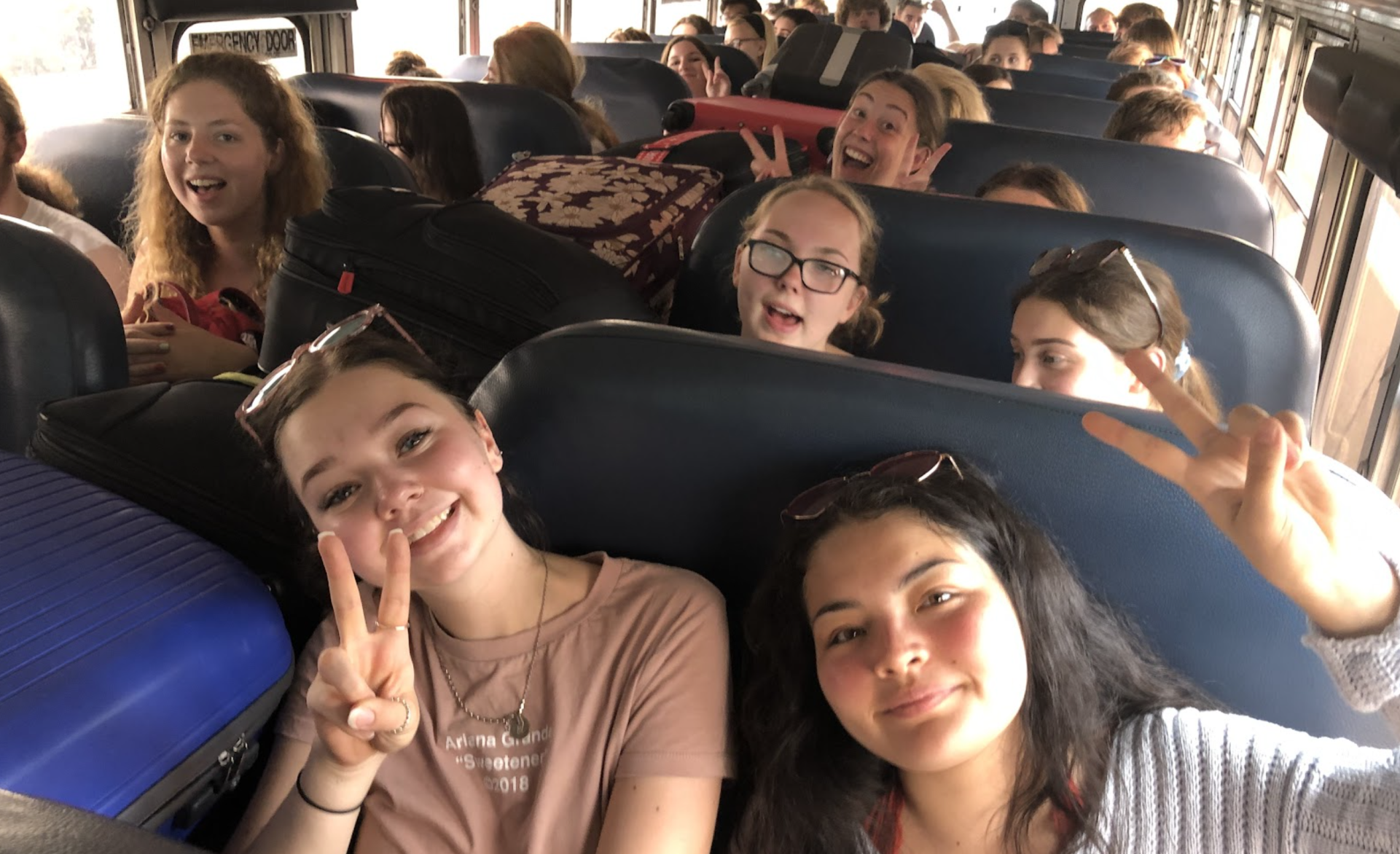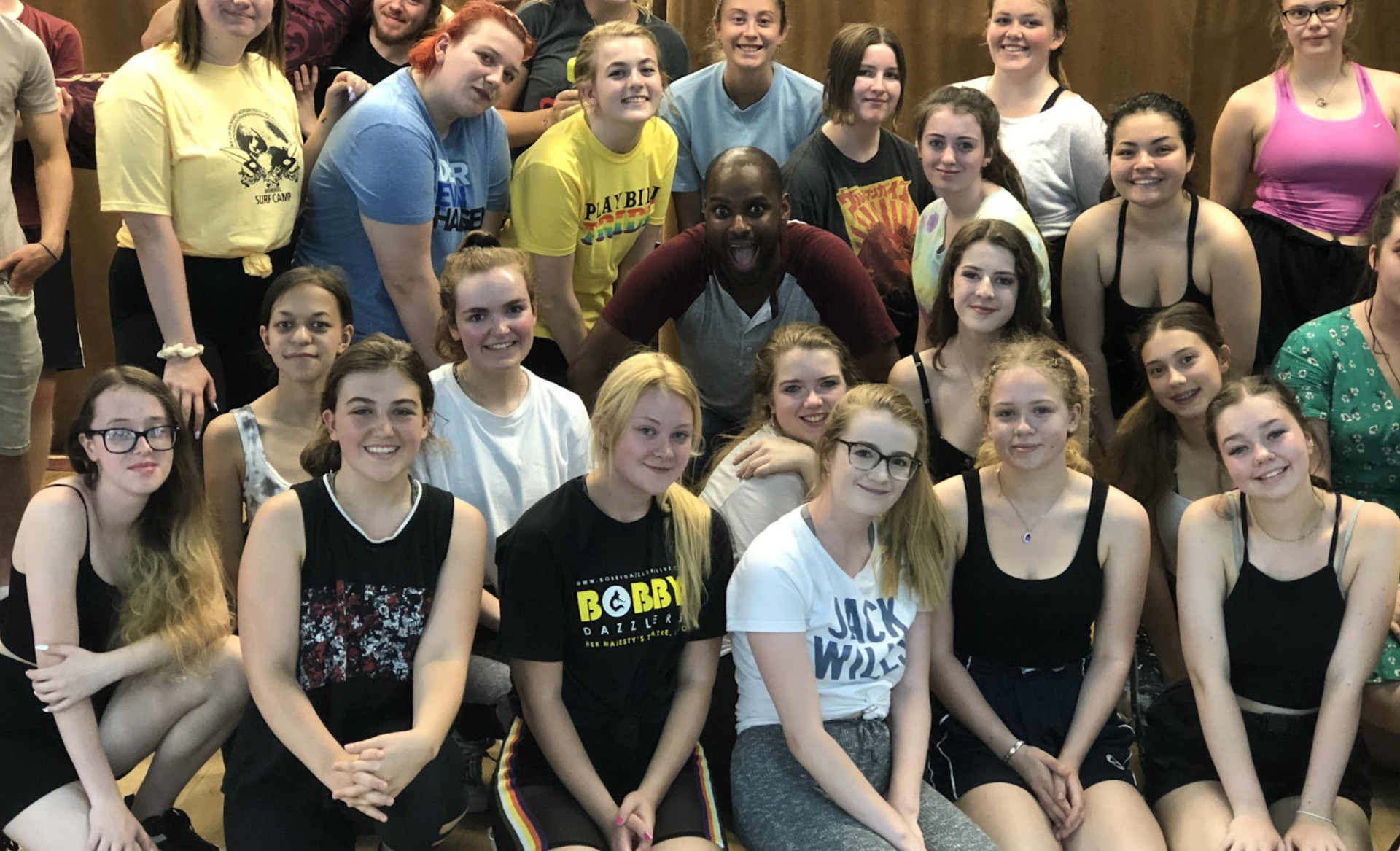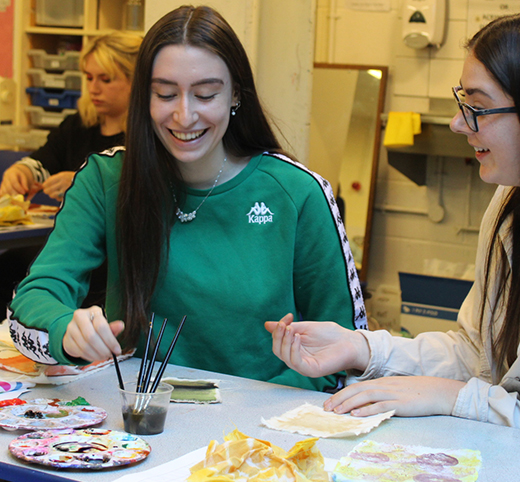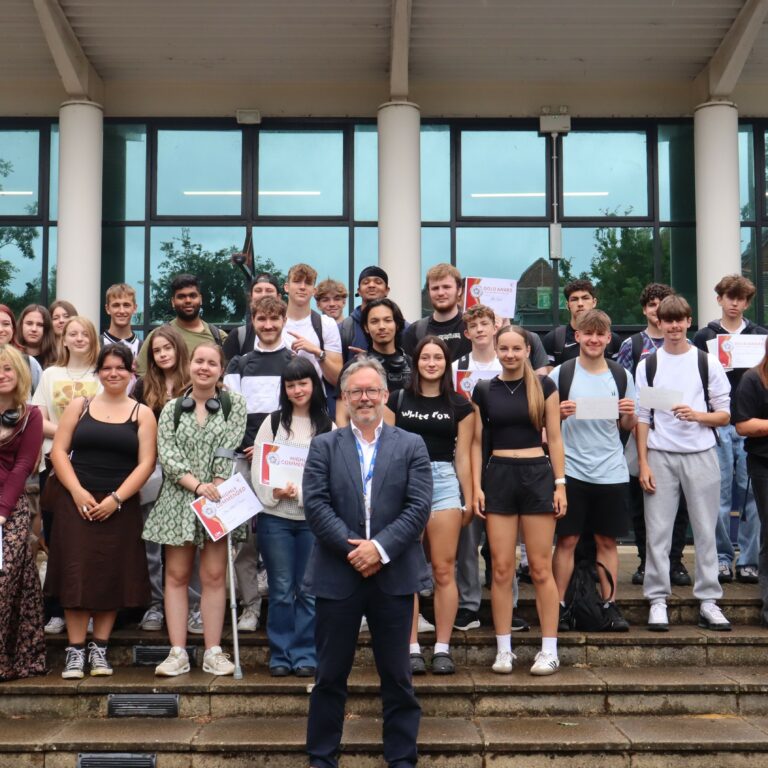The Dance A Level course is designed to give you a theoretical and practical experience of understanding dance. You will gain experience of choreography and performance to engage you in critically thinking about the subject. This course is aimed at anyone interested in gaining a greater understanding of Dance and those who have some experience. You will gain experience of choreography and performance to engage you in critically thinking about the subject.
You need to commit yourself fully to the demands of academic study both in and out of College. There are also rehearsals that happen outside of lesson time and there is the opportunity to join the college dance company and perform in a range of venues.
WELCOME TO THE PERFORMING ARTS DEPARTMENT
We have high expectations of all of our Performing Arts students and aim to challenge you to achieve outstanding results. Excellent facilities and a team of highly dedicated and committed teachers will ensure that you are provided with every chance of succeeding during your time at College. At QMC, professional equipment and facilities have been carefully chosen to enhance your learning and help you acquire the skills you will need to work in the performing arts industry.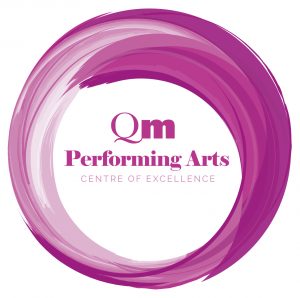
Our Performing Arts mission is to develop Creativity and Academic Excellence for your future:
- Strive for excellence and innovation
- Be authentic
- Be exciting, inspiring and engaging
- Ensure a positive and inclusive experience
- Enable personal progression


